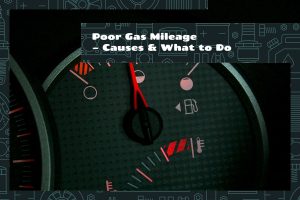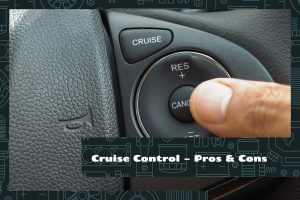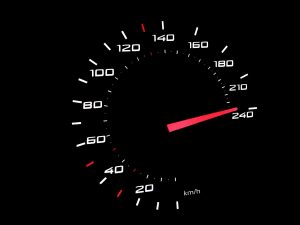A ride in your car should be smooth and enjoyable, but when it begins to shake during acceleration, it can turn into a distressing experience. Not only is it bothersome, but it can also be indicative of underlying problems that might affect the vehicle’s performance and safety.
The main causes of the car shaking when accelerating include:
- Engine issues are often due to dirty air filters or faulty spark plugs.
- Tire and wheel problems, such as unbalanced tires or misalignment.
- Brake system problems, like warped rotors or worn brake pads.
This article will discuss how to diagnose them, methods to fix the issue, and tips to prevent future occurrences.
Diagnosing the Cause of a Shaking Car When Accelerating
Knowing the root cause of your car’s shaking during acceleration is essential in resolving the issue effectively. This problem may arise from various sources. Here are some of the most common culprits that you should consider.
1. Engine-Related Issues
Engines are the powerhouse of vehicles. If something isn’t right with your engine, it can cause the car to shake when you press on the gas pedal.
a. Dirty Air Filters
Air filters ensure that your engine gets the clean air it needs to function efficiently. Over time, these filters can accumulate dirt and debris, which can restrict airflow to the engine. When the engine doesn’t get enough air, it can cause the car to shake when accelerating.
b. Spark Plugs
Spark plugs are a vital part of your car’s engine. They provide the spark that ignites the fuel, thus powering your car. If your spark plugs are worn out or faulty, they can cause the engine to misfire, creating a noticeable shake when you accelerate.
2. Fuel System Issues
The fuel system supplies your engine with the gas it needs to operate. Issues in this system, such as a clogged fuel injector or a failing fuel pump, can cause your car to shake. These problems can prevent the engine from getting the right amount of fuel, leading to inefficient combustion and engine misfire.
3. Tire and Wheel Issues
The tires and wheels of your car are integral to its motion and stability. They are the vehicle’s only contact with the road, making them essential for smooth, shake-free driving. Issues like unbalanced tires, improper wheel alignment, or uneven tire wear can disrupt this harmony. These problems can cause the vehicle to vibrate, particularly noticeable when accelerating.
a. Unbalanced Tires
Tires need to be balanced correctly to ensure a smooth ride. If the tires are unbalanced, they can cause vibrations that get worse with speed. Balancing your tires involves placing them on a balancing machine, which spins the tires to locate the heavy spots that are causing the imbalance.
b. Wheel Alignment
Misaligned wheels can also cause your car to shake when accelerating. Proper alignment ensures your tires are pointed in the right direction and making contact with the road properly. If your alignment is off, it can cause your tires to wear unevenly, leading to shaking.
c. Tire Wear and Tear
Tires naturally wear down over time. However, if they wear unevenly, it can result in shaking during acceleration.
4. Brake System Problems
The brake system is another common source of car shakes. When you have issues with your brake system, you may feel the shaking even more when you’re slowing down.
a. Warped Rotors
Rotors are a critical part of your brake system. When they’re warped or damaged, it can cause your vehicle to shake when you apply the brakes, and sometimes even when accelerating.
b. Worn Brake Pads
Brake pads provide the friction your car needs to slow down. When they’re worn down, it can cause your car to shake when you apply the brakes.
Addressing the Problem

Having identified the common causes of your car shaking when accelerating, it’s time to address them. Whether it’s a DIY fix or requires professional intervention depends on the nature of the problem.
Home Fixes for Car Shakes
Some problems, such as replacing air filters or spark plugs, are relatively simple and can be resolved by car owners with a basic knowledge of automotive maintenance. Here are some simple issues you can address on your own:
1. Cleaning Air Filters
If a dirty air filter is causing your car to shake, cleaning or replacing it can solve the problem. Air filters are usually easily accessible and can be cleaned or replaced with basic tools. Check your vehicle’s manual for specific instructions.
2. Replacing Spark Plugs
Spark plugs are also user-replaceable. A worn-out spark plug can be removed with a spark plug socket and replaced with a new one. Make sure to use the correct type of spark plug specified for your vehicle.
3. Checking Tire Balance and Alignment
While it is possible to balance tires and align wheels at home, it requires specific tools and expertise. If you’re confident, you can attempt it. Otherwise, it’s best to have these tasks performed by professionals.
When to Seek Professional Help
intricate tasks such as wheel alignment, brake system fixes, or dealing with engine problems may require professional help.
1. Engine Issues
Deep-seated engine problems, like issues with the fuel system, are usually beyond the scope of DIY fixes. A professional mechanic has the necessary training and tools to diagnose and fix these problems.
2. Serious Brake System Problems
If your brake system is causing your car to shake, it’s usually best to have a professional inspect it. Brake problems can be serious and, if not correctly fixed, can lead to safety issues.
3. Complex Tire and Wheel Issues
Problems such as tire imbalance, misalignment, or wear and tear are best handled by professionals. They have the tools and knowledge to fix these issues effectively and ensure a smooth, safe ride.
Preventing Future Shakes
An ounce of prevention is worth a pound of cure. This statement holds true when dealing with car shakes when accelerating. Here’s how you can prevent such issues in the future.
Maintenance Tips to Prevent Car Shakes
Regular maintenance can help avoid most causes of car shakes. Here are some tips:
1. Regular Engine Checkups
Taking good care of your car’s engine can prevent many issues, including car shakes when accelerating. Regular oil changes are vital to keep your engine running smoothly. The oil keeps engine parts lubricated and helps to prevent overheating.
Dirty air filters can also cause your car to shake when accelerating. Check them regularly and replace them when necessary to ensure your engine gets clean air.
Faulty spark plugs can cause misfires leading to car shakes. They should be replaced every 30,000 to 150,000 miles, depending on your car’s make and model.
2. Tire Maintenance
Your tires should be inspected frequently for signs of wear and tear, correct pressure, and proper balance. A routine rotation helps ensure even wear on all tires, leading to a smoother ride.
Keeping your tires and wheels in good shape is essential for a smooth, shake-free ride. Regularly inspect your tires for signs of wear and maintain the correct pressure.
Tire balancing should be done every 12,000 miles to prevent vibrations. Wheel alignment should be checked at least once a year or whenever new tires or suspension components are installed.
3. Brake System Checks
Check your brake system periodically, especially the condition of the brake pads and rotors. If they show signs of excessive wear, have them replaced? An efficient braking system is essential for a smooth and safe ride.




